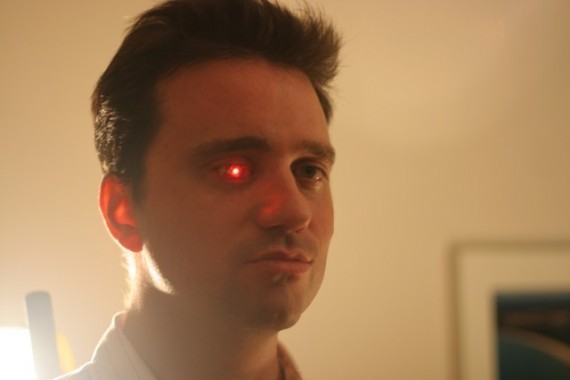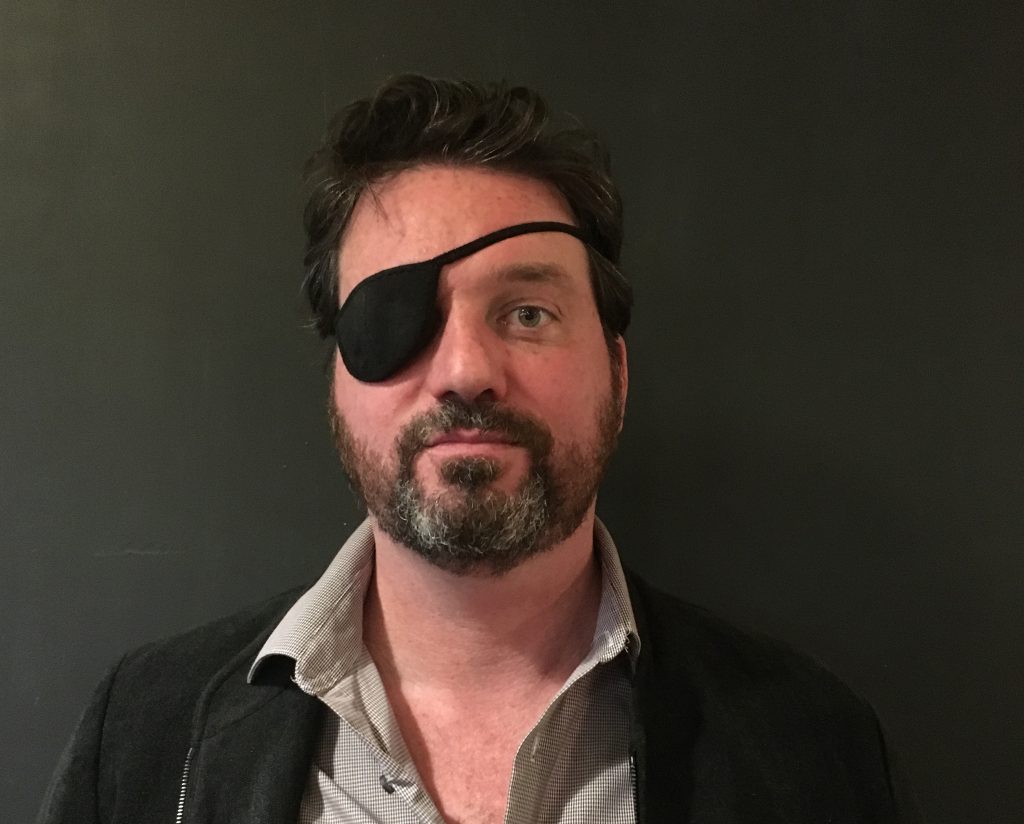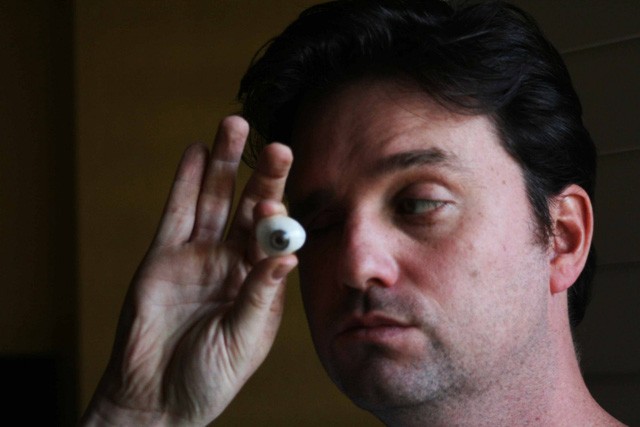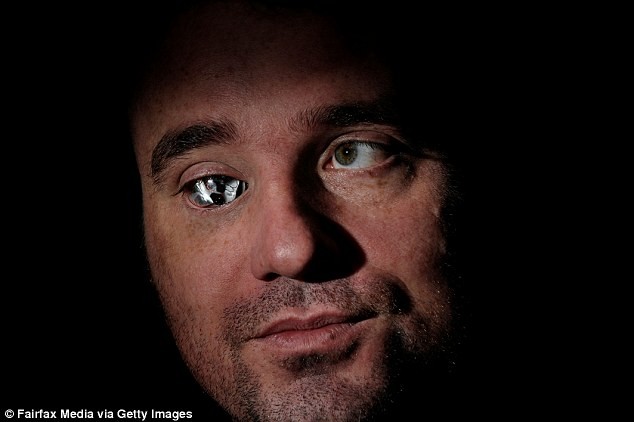
When Rob Spence lost his right eye in a gun accident as a kid, it was the worst thing that ever happened in his life up until that moment. Then the loss opened up an opportunity for Spence. Removing the dead eye gave him the chance to slap an eyeball-shaped camera in its place.
The first thing this writer thought when he heard this story was, “you’ll shoot your eye out,” the famous line from the movie “A Christmas Story.” Then an image of Spence popped up with a glowing red eye. It was so Terminator, even Schwarzenegger would find it intimidating. A nod to the obvious references, Spence calls himself “eyeborg” when he’s sporting the implant.
This hack presents an interesting prospect for transhumanists, as nobody wakes up one day motivated to ditch a perfectly good eye. One might, however, take interest if she’s already lost one.
If Spence can take his experiment to the furthest reaches, connecting the camera to the brain, now we’re talking. First, he had to get it to stop overheating in his own socket.
Losing an eye

Spence didn’t will this on himself. When it happened, he’d already lived nine glorious years with normal sight.
One day he was shooting at a pile of cow dung with a gun, the sort of thing a nine-year-old in the country tends to do.
“I wanted to shoot a pile of cow***t,” he told Wired. “I wasn’t holding the gun properly and it backfired, causing a lot of trauma to the eye.”
He was in Ireland visiting his grandfather when took the unexpected blast to his right eye. As is turns out, one isn’t supposed to put the gun’s sights against the eye when firing. The resulting backfire took out his right eye.
Spence’s eye worked somewhat after that, but two years later it was worthless. Before he was a teenager, he was officially blind in one eye. That would remain the case until he was in his early forties.
Gaining a camera

It is, perhaps, ironic that the man with one eye would take an interest in a profession so steeped in visual stimulation; filmmaking. Long before this, Spence made documentaries with normal cameras. A camera eye would just mean another angle.
The first step for Rob was to have doctors remove his old eyeball, replacing it with a prosthetic. The old eye was creating problems.
“I was told I had to get my eye replaced,” he told Motherboard. “That’s when I began research eye cameras.”
He had this surgery in 2005. The team who removed his old eye even joked that he should replace it with a camera.
“… People doing the surgery [said], ‘Oh, you should get an eye camera,’” Spence told the New York Post. “The idea is so out there in pop culture and science fiction.”
Spence assembled a small team of engineers, who turned out a couple versions of his bionic eye before creating the most recent version. It’s starting to look more normal if normal were a glowing red eye.
Growing an idea

The first versions of the camera, completed in 2008, had an issue overheating. He could only keep it in for a few minutes. The most recent version runs out of battery after about a half hour.
There are many other obstacles to overcome before Spence can port his fake eye into his brain. As a whole, humans are far from making any connections to the brain permanent.
For now, the camera in Spence’s eye sends what it records via radio frequency to a drive. It’s a novelty, an idea upon which to build for Spence and other transhumanists.
Like a good storyteller, he’s kept a running documentary of his progress, even made mini-docs along the way. Spence has appeared on TED’s famous talks, and amongst the crowd at biohacking events, he draws attention.
The long-term pie-in-the-sky goal for Spence is a prosthetic which draws no attention. It’s safe to assume this is the goal for wearables companies and prosthetic companies alike.
The speed at which humanity progresses is logarithmic. We can barely compare now year to the last. It’s quite possible that we are a decade away from cybernetic eyes, even for those with perfectly good eyes.
Whatever happens, the next generation of Eyeborgs will cite Spence for reference.
Sources: motherboard.vice.com, nypost.com, robspence.tv